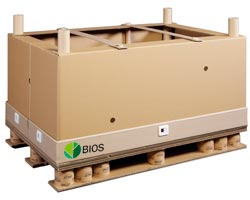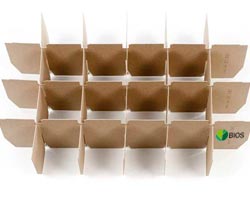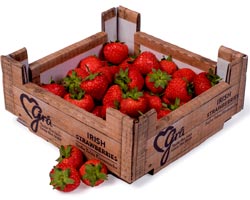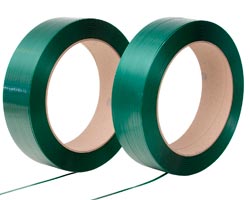BIO PALETS (support)
 A more efficient, practical and ecological pallet
A more efficient, practical and ecological pallet The cardboard pallet is 100% recyclable, so its disposal at the end of its useful life does not cost the owner, but has a residual value that allows the owner to recoup part of his investment.
The BIO Pallet is the only paper pallet in the world that allows logistical optimization with all the advantages of cardboard - 100% recycled and recyclable material - but without the disadvantages of conventional pallets.
The lightest cardboard pallet.
The weight of our cardboard pallet is one of its most notable characteristics, being able to weigh from less than 1 Kg to 8 Kg depending on the models, compared to the 32 kg that current pallets can weigh.
Reduces CO2
It is much lighter than its wood or plastic equivalents on the market, thus reducing costs, fossil fuel consumption and CO2 emissions associated with transport of merchandise, even allowing transport by air.
Compact
The BIOS cardboard pallet, due to its interlocking stacking way, can be stored much more compactly, reducing space and optimizing transport and storage.
Accessible
BIO Pallet is accessible from all 4 sides, facilitating pallet handling tasks during the storage and transport process. In fact, the height of the pillars can customized based on specific customer needs.
BIO SHOULDER PADS (protection)
 Why are 100% recycled cardboard BIOS corner pieces the best sustainable option?
Why are 100% recycled cardboard BIOS corner pieces the best sustainable option? There are various corner pieces on the market whose objective is to replace expensive packaging material and strengthen the transported product by reducing the minimal material damage.
In addition, the corner pieces protect the products and the load, during transport and storage, from shocks and breakages and, therefore, offer resistance against external agents.
The difference between the various types of corner pieces lies in the material used as raw material.
There are corner pieces made of plastic and aluminum in different percentages and also as the only material. This material is not recyclable, nor does it come from recycled sources and it also has a great problem since its management at the end of its useful life is complicated so it offers a quick solution in the short term but a headache for many companies in the long run term.
There are also cardboard corner pieces that come from recycled material from cartons that contain juices, milk and other beverages. However, recycling this material is a tricky business. Briks are made up of different percentages of materials. Mostly 75% paper, 20% plastic and 5% aluminum.
This fact implies that they have to be treated in a differentiated way and with special machinery that achieves recycling and reuse but consuming a high power of electrical energy to achieve this end.
This generates new CO2 into the atmosphere that is also leaving an environmental footprint on the planet. For this reason, the positive aspect of the use of this type of corner piece, on the one hand, reduces environmental benefits on the other. So they're all tough, but BIOS 100% recycled cardboard corner pieces are the best sustainable protection. They come from recycled raw material, recycled cardboard. At the end of their useful life they can be recycled and are biodegradable. And therefore they are respectful with the environment.
In addition, they comply with Spanish legislation that encourages the use of sustainable packaging and which, according to the 2011 Waste Law, are "those made with renewable, recyclable and biodegradable raw materials", taking paper or cardboard as an example.
Optimization
Apart from optimizing space and protecting the load and the products transported, they can also be sent anywhere in the world without the need for any additional treatment such as fumigation, required for wood, so they are the ideal product to accompany the pallet of 100% recycled cardboard from BIOS.

BIO TRAYS (inner container)
ProtectionPackaging divisions are a type of protective packaging designed to secure and protect multiple individual products (for example: bottles, glass containers, delicate products, etc.) within a box exterior, ensuring that they remain free from damage during transit.
Packing partitions, also often referred to as box partitions, dividers, or dividers, can be made from both solid board and corrugated board. Outer packaging can be designed in conjunction with partitions for maximum performance wherever product damage is a problem.
Properties
Both materials have different properties that make them more suitable for use when protecting different products. The optimal material will be selected for your performance requirements and supply chain variables.
Solid cardboard partitions protect by staying tight and restricting movement of primary product during transit. Corrugated partitions protect by cushioning products such as lightweight corrugated pads during transit.
BIO BOXES (outer packaging)
 Exclusive Product
Exclusive Product We manufacture a wide range of corrugated and solid cardboard trays that are used to transport products through the supply chain and display products on shelves.
The trays are tailored to your needs and can be modified for manual, semi-automated or automated packaging lines.
The tray collects their products, allowing them to handle them more efficiently and offering excellent branding opportunities.
Design
Trays can be designed to meet retail requirements, providing easy access to products and high-quality printing, increasing product visibility on the shelf at the point of sale.
There are a number of tray variations available for specific supply chain requirements, for example trays that combat extreme changes in the environment such as humidity.
In addition to packaging, we can also provide tray mounters that allow efficient mounting of trays at your own location.
BIO STRAPPING (subjection)
 Continuous sustainability
Continuous sustainability The strap has a variable width of between 5 and 15.5 mm and is suitable for all types of strapping machines, regardless of the manufacturer or the type of machine. With this, BIOS is concerned with the growing demand from the customer on sustainability issues.
Recycling process from start to finish
Our PET strap is made from 100% recycled material: so-called "bottle flakes" are the result of recycling plastic bottles from empty containers. After this process, the recyclable material becomes a new premium quality product: depending on the width of the PET strap, mostly green in color, it can withstand loads between 180 and 600 kg. The waste material or residue generated automatically during the production of the same, is returned again to be used again through a crushing process.
According to a statement from the recycling service provider Interseroh, the use of recycled material saves around 85% of CO2 emissions compared to primary processes: These represent about 2.5 Tn. of CO2 for every ton of material produced, compared to using virgin material. The savings produced in one year are equivalent to the annual amount of CO2 filtered from the air for every 500 hectares of forest.
Customer-oriented sustainability
BIOS continually works to provide customer-oriented solutions. One of the most popular products is the 5 mm wide polypropylene strap. It has a linear length of up to 8000 m. per coil instead of the usual linear length of 6500 m. This not only saves space in transportation but also allows fewer reel changes and reduces costs for the customer.
In addition, optimized technology with packaging and palletizing systems means less disposable waste for the customer. For example, in many cases, the strap is not applied to the cardboard boxes, but directly to the pallet. It is fully wrapped with stretch film, thus saving about 40 cardboard sheets per pallet. Over the course of a year, account savings amount to several thousand sheets of cardboard on average.
Of course, customers can also dispose of the used strap for other purposes and contact a recycling plant and take their waste strap there.
Our biodegradable strap, the bio-strap Increasingly, renewable resources for plastics are progressively coming to the fore in the packaging industry. BIOS also took on this challenge. With our bio-strap, produced from natural polylactic acid (PLA), BIOS has already taken the first step in this direction. Currently the biodegradable strap is available in a width of 5 mm and soon in 8 and 12 mm.
This use of bio-sourced plastics greatly reduces the consumption of fossil fuels. This is accompanied by a significant reduction in greenhouse gas emissions. Another advantage of this material is that it is completely biodegradable. After 12 weeks, our bio-strap completely degrades under the normal conditions of an industrial composting plant.
BIO SEAL (BIO guarantee)
 Certified BIO
Certified BIO BIOS has a BIO guarantee seal that allows us to offer and guarantee our customers manufacturing processes, security protocols, and exclusive quality that differentiates us from other suppliers in the sector.

